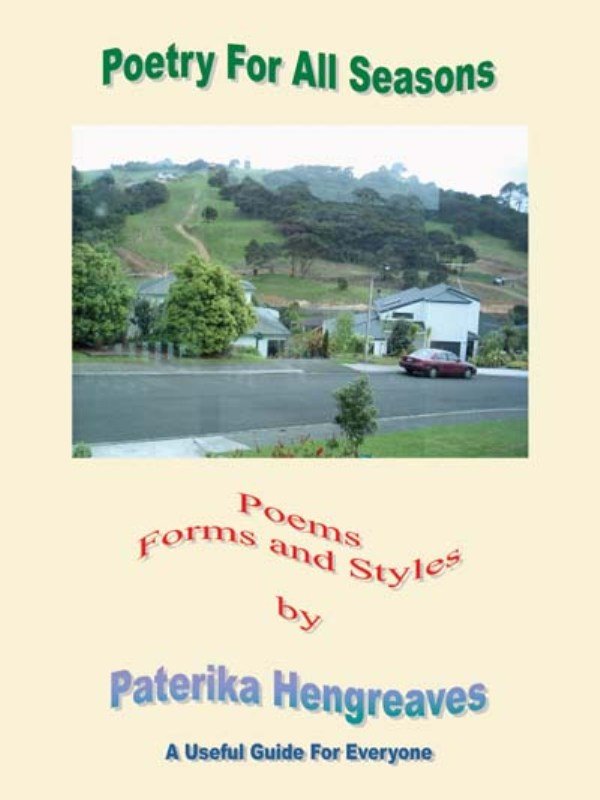
Author's Comments
As any cool cat would tell you, Prose Poetry is better explained by comparing and contrasting it against Prose and Free Verse, as well as providing its own suitable description.
Prose Poetry is characterized with rhythmic, aural and syntactic repetition; compression of thought; sustained intensity and patterned structure, but is set on the page in a continuous sequence of sentences as in prose, without line breaks.
Prose is the ordinary language people use in speaking or writing, as distinguished from the heightened language of poetry. In Prose, the line is not treated as a formal unit, nor does it employ the repetitive patterns of rhythm or meter associated with the many forms of poetic expression. The cadence or rhythmical prose (Prose Poetry) is not established before, but emerges from the rhythm of thought.
Cadence is the recurrent rhythmical pattern of lines of verses; also, the natural tone or modulation of the voice determined by the alternation of stressed or unstressed syllables. It differs from meter in that it is not necessarily regular but rather a more flexible concept of rhythm such as is characteristic of Free Verse and Prose Poetry.
One of the characteristics that distinguishes Free Verse from Prose Poetry (rhythmical prose) is that Free Verse has line breaks which divide the content into uneven rhythmic units. The liberation from metrical regularity allows such writers a free hand to select as it were, line breaks appropriate to the intended sense of the text, as well as to shape the white space on the page for visual effects.
Free Verse enjoys a greater potential for visual arrangement than is possible in metrical verse. Free Verse writers can structure the relationships between white space and textual elements to indicate pause, distance, silence, emotion, and other effects.
Free Verse is therefore, a fluid form which conforms to no set rules of traditional versification. This liberalization it enjoys is all because it is not governed by fixed patterns of meter and rhyme. However, writers of Free Verse employ familiar poetic devices such as assonance, alliteration, imagery, caesura, figures of speech, and so on. The rhythmic effects in Free Verse depends on the syllabic cadences emerging from the context. Free Verse has come into North American Literature as the preferred genre by the imagine. However, current trends are suggesting some shift back to structured forms of poetry and this seems to be emerging. I guess that the proliferation of Free Verse (good and bad fast food) may be the culprit. Who knows, really! We'll have to watch this trend with bated breath. As I was saying, for the imagine writers of Free Verse, has become the core of their poetic expression. They believe that Free Verse allows the though process to flow uninhibited while sucking in new rhythmic effects, colloquial language, and the expression of ideas and emotions, with clear, well-defined images, rather than through romanticism or symbolism. Now to end on a clear note, I think it is prudent to say a little something on the terms: romanticism, symbolism, realism and
neoclassicism. Got to fill up this blog anyway, so I'm smiling. Are you smiling too! I hope so! It kills stress. I'm sure you know that. Anyway, as I would like to say... romanticism formed its roots as an 18th Century movement revolting against the conventional strictness of
neoclassicism and placing artistic emphasis on imagination and the emotions.
Symbolism has its roots in a movement in the 19th Century that reacted against realism. Influenced by the connections between music and poetry, it sought to symbolize the basic idea or emotion of each poem.
Realism concerns itself with fact or reality and rejects the impractical and the visionary.
Neoclassicism in literature from an English orientation depends on most fundamentally a consensus about a body of work that has achieved canonical status. These are the "classic" models. Novelty, improvisation, self-expression, and blinding inspiration are not tenants of
neoclassical virtues. Neoclassicism exhibits perfect control of an idiom. It does not recreate art forms from the ground up with each new project, in short it does not reinvent the wheel, as modernism appears to demand.
In any culture can be found the relative canons of classics and a recurring strain of
neoclassicism appears to be a natural expression of a culture at a certain moment in its career, a culture that is highly self-aware, that is also confident of its own mainstream tradition, but at the same time feels the need to "regain" something that has slipped away. Now as I ponder on this I do believe my homeland, Barbados is at the crossroads in this respect. It is going through a phase of neoclassicism for the call is constantly echoed "we need to regain our past and culture" then pessimistic fence sitters under their armpits would say in sarcastic parlance that "Bajans ain't got no culture"... that is gross understatement I have ever heard. Of course, there is much culture that is distinctly Barbadianism: West Indianism and Caribbeanism are not merely buzzwords they can define our roots and rich cultural heritage and more importantly as a revered nation. I'd say that we should keep holding on to these isms for they augurs well for our decorative and visual arts, literature, theatre, music and architecture for we are a proud nation with self-awareness, confidence..."friends of all, satellites of none."It defines who we truly are and how far we have grown into a self-governing nation.











No comments:
Post a Comment